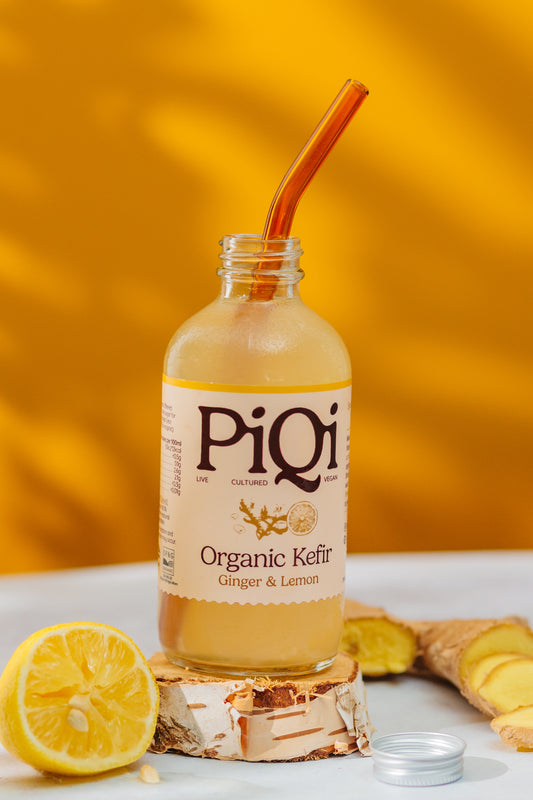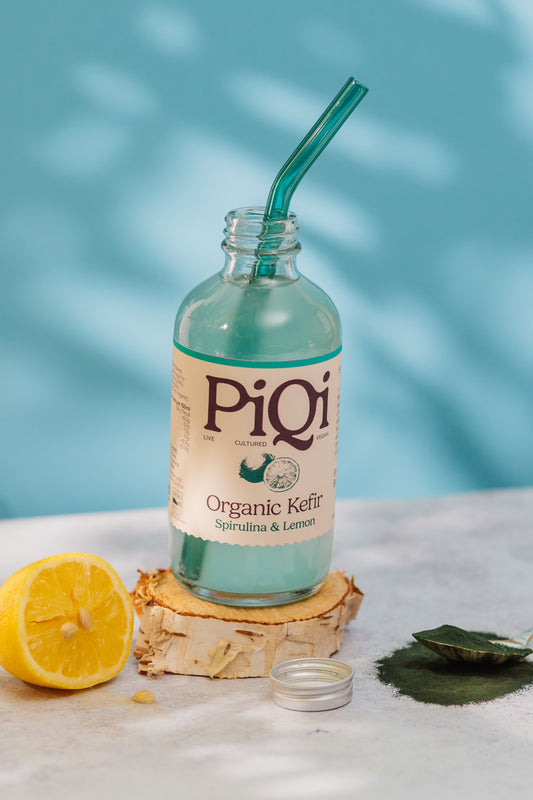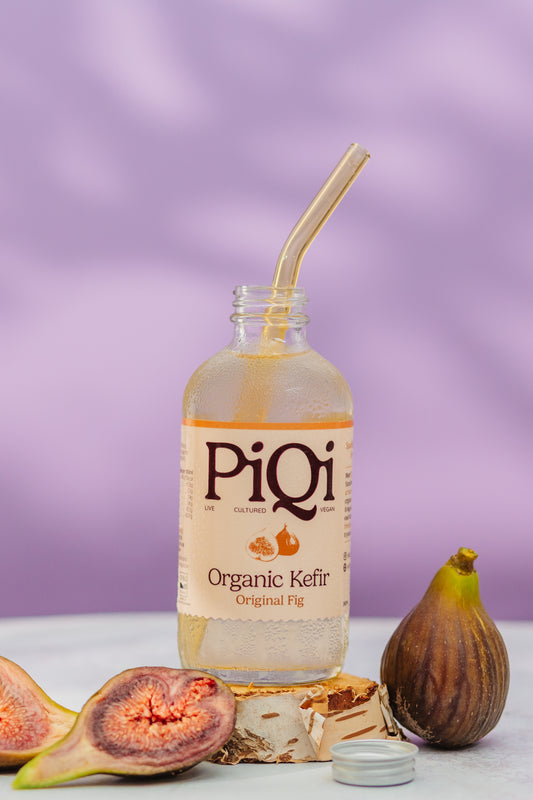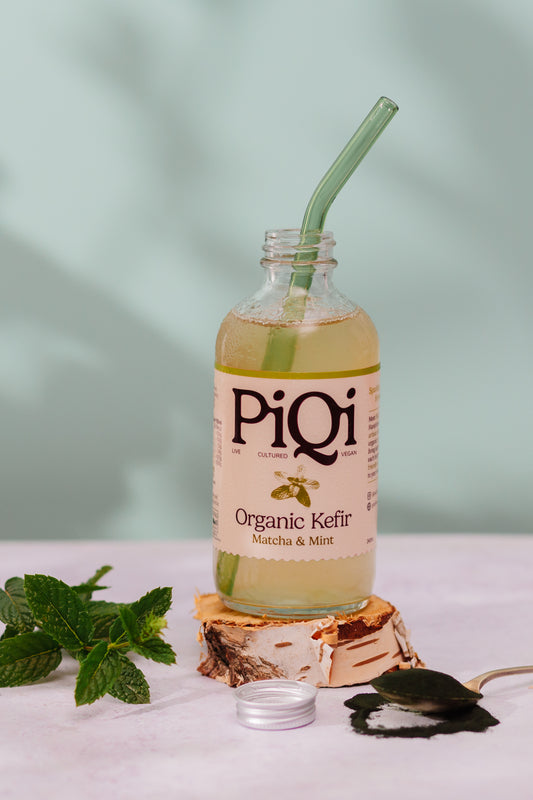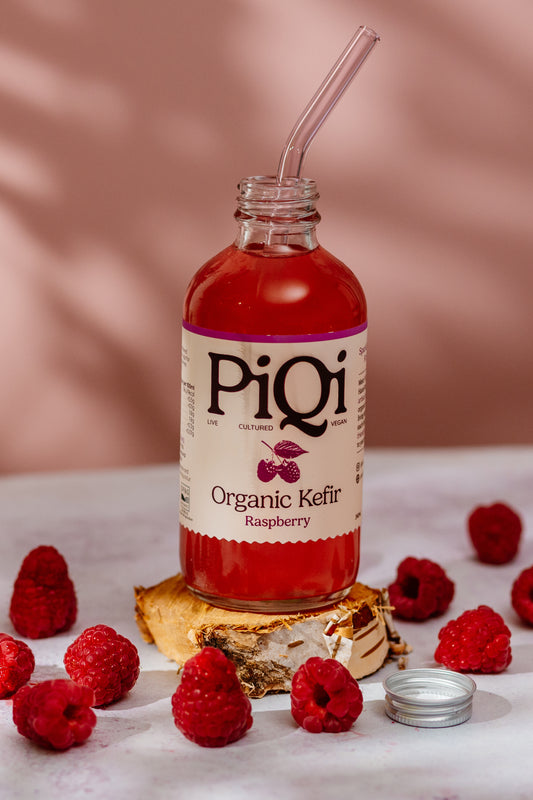Fermented beverages like kombucha and water kefir have become increasingly popular, touted for their gut health, skin and immune boosting benefits. However, are they safe to consume during pregnancy?
Here we’ll explore the dos and don'ts of drinking fermented beverages while pregnant and highlight any potential concerns so you can make an informed decision.
Potential Issues with Fermented Drinks During Pregnancy - Alcohol
Drinks like water kefir, kombucha, and kvass all contain trace amounts of alcohol as a natural byproduct of fermentation. However, most commercially available fermented drinks are raw and unpasteurised, meaning they continue fermenting throughout their shelf life, potentially increasing the alcohol content.
For comparison, commercially produced fermented beverages typically have less than 0.5% ABV (alcohol by volume). However, improper storage (above 40°F or 4°C) can lead to continued fermentation, potentially raising the alcohol content to around 1% ABV.
Caffeine Content in Kombucha During Pregnancy
Unlike water kefir and kvass, kombucha is brewed using caffeinated tea, adding another concern for pregnant women. The American College of Obstetricians and Gynecologists (ACOG) recommends limiting caffeine intake to less than 200mg per day during pregnancy, even though the amount of caffeine might be small, if you’re avoiding caffeine all together bear in mind that all kombucha contains caffeine.
Making Your Own Kefir and Kombucha at Home During Pregnancy:
While commercially produced drinks undergo strict quality control, homemade fermented beverages carry additional risks. These risks include:
- Contamination with harmful bacteria: Maintaining proper hygiene during the brewing process is crucial to prevent contamination with harmful bacteria that can be detrimental to your health
- Higher alcohol content: Homemade ferments can reach up to 1.5% ABV, and readily available home-brewing tests may not be sensitive enough to detect these levels accurately, increasing the risk of unknowingly consuming more alcohol than intended
Can You Drink Commercially Produced Water Kefir or Kombucha While Pregnant?
Similar concerns regarding alcohol content (around 0.5% ABV) remain with commercially produced water kefir and kombucha. In addition, labeling inconsistencies on packaging can be very confusing. In Europe, drinks below 0.5% ABV are considered non-alcoholic, and some brands might not explicitly disclose the presence of alcohol or include warning labels. Therefore, assuming a fermented beverage is entirely alcohol-free based solely on the label is risky. Note if you’re avoiding alcohol all together consult your doctor about other hidden sources of alcohol in your food including ripe fruit and regular fruit juices which can range from 0.2-0.5% in alcohol without any warning labels on the packaging.
Pregnancy-Safe Fermented Drinks:
Some brands advertise themselves as "pregnancy-safe." However, these products are likely pasteurised (heat-treated), which destroys the beneficial probiotic cultures present in true fermented drinks. While some brands add lab-grown cultures similar to those found in yogurt after pasteurisation, these drinks wouldn't offer the intended benefits of kombucha or kefir.
Identifying Pasteurised Fermented Drinks:
An easy way to identify pasteurised or micro-filtered (which doesn't remove alcohol) fermented drinks is by checking their storage requirements. True, "living" fermented drinks require refrigeration to slow down fermentation and maintain their raw, live state. Conversely, drinks that can be stored at room temperature have likely been processed and won't offer the expected benefits. You’re more likely to find them packaged in cans rather than glass bottles.
Final Thoughts on the Safety of Fermented Kombucha and Kefir During Pregnancy:
Due to the presence of alcohol and inconsistent labeling in commercial beverages which make it hard for customers to make an informed decision, we recommend to air on the side of caution and avoid fermented drinks during pregnancy. Always consult your medical professional for advice when making dietary changes especially during pregnancy.
The information provided is for informational purposes only and should not be taken as medical advice.


